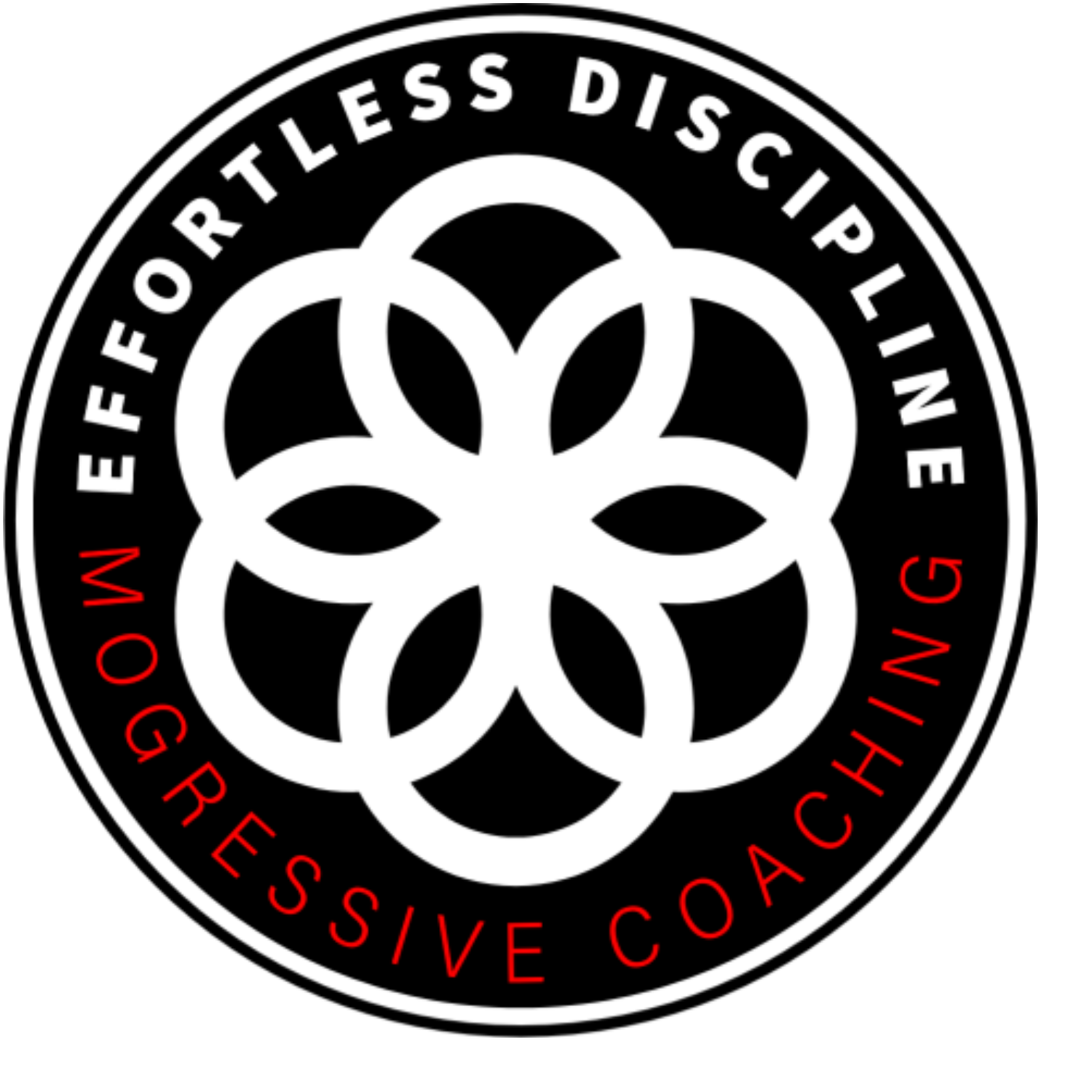20 Habits to Leave in 2023
Step into 2024 with Confidence!
As we bid farewell to 2023 and welcome 2024, it's a perfect time for reflection and growth. In our journey towards self-improvement, it's crucial to leave behind certain habits and mindsets that can hinder our progress. This list, crafted for individuals in their 20s, 30s, & stepping into their 40’s focuses on 20 key areas to let go for personal growth. These points are not just suggestions but pathways to unlock a more fulfilling and authentic life. So, let's dive in and explore what we should leave in 2023 to flourish in 2024 based on information collected over the past 5 years from past clients and prospects.
Saying Yes When You Want to Say No
It's tough because we often don't want to let people down. This usually starts when we're young, learning that being agreeable keeps everyone happy.
Explanation: This involves recognizing and honoring your own limits and preferences.
Importance: It prevents overcommitment and stress, leading to better mental health.
Real-world Example: A young professional opting out of extra projects to maintain work-life balance.
Statistics: Studies show that inability to say no can increase stress levels significantly.
Not Prioritizing What's Actually Important
Life gets busy, and it's easy to lose sight of what really matters to us. This often comes from growing up in a world that values being busy over being happy.
Explanation: Focus on what truly matters to your personal and professional life.
Importance: Ensures that your actions align with your life goals and values.
Real-world Example: A person in their 30s prioritizing family over excessive work commitments.
Statistic: Approximately 60% of millennials value work-life balance over other career benefits.
Doubting Your Ability to Accomplish Goals
This usually starts with a few setbacks that make us question our abilities. It's hard to shake off that doubt, especially if you've been told you're not good enough in the past.
Explanation: Overcoming self-doubt to pursue your aspirations confidently.
Importance: Enhances self-esteem and leads to higher achievement.
Real-world Example: A recent graduate confidently applying for ambitious job positions.
Statistic: Research indicates a strong correlation between self-efficacy and success.
Believing You Don’t Deserve What You Want
If you've been told or felt in the past that you're not worthy, it sticks with you and makes it hard to believe you deserve good things.
Explanation: Shifting mindset to understand that you are worthy of success and happiness.
Importance: Encourages the pursuit of personal and professional aspirations.
Real-world Example: An individual pursuing a dream despite initial self-doubt.
Statistic: Low self-esteem has been found to adversely affect career progression.
Thinking Weight Loss Will Make You Happy
We're often told that being thinner means being happier. It's hard to unlearn that message, especially if it's been around since we were young.
Explanation: Refocusing from weight loss to overall well-being and health.
Importance: Promotes a healthier and more holistic approach to happiness.
Real-world Example: A person finding joy in healthy living, beyond just weight loss.
Statistics: 80% of women report dissatisfaction with their body image.
Believing Social Media Is Reality
Growing up in a world where everyone's life looks perfect online, it's easy to forget that it's not real life.
Explanation: Understanding that social media often presents a distorted view of reality.
Importance: Reduces the impact of unrealistic comparisons on mental health.
Real-world Example: A young adult limiting social media usage to improve self-esteem.
Statistic: About 50% of millennials feel negative effects of social media on self-esteem.
Thinking It’s Impossible to Love Your Skin
When all you see are photoshopped images of 'perfect' bodies, it's tough to feel good about your own.
Explanation: Embracing self-love and acceptance of your physical appearance.
Importance: Builds confidence and promotes body positivity.
Real-world Example: An individual celebrating their unique features and imperfections.
Statistic: Body positivity campaigns have been shown to improve body confidence by 30%.
Holding Onto Past Mistakes
We're hardwired to remember the bad more than the good. Plus, if you grew up feeling like you couldn't make mistakes, it's hard to let them go.
Explanation: Learning from past errors without dwelling on them.
Importance: Allows for personal growth and development.
Real-world Example: An entrepreneur moving forward from a previous business failure.
Statistic: Around 90% of startups fail, but many entrepreneurs find success in secondary ventures. Trust the process, one of mogressive’s 4 pillars of success.
Stepping on the Scale Daily
If you've always been taught to measure your worth by your weight, it's a hard habit to break.
Explanation: Avoiding fixation on daily weight and focusing on overall health.
Importance: Encourages a healthier approach to body image.
Real-world Example: An individual focusing on nutritious diet rather than constant weighing.
Statistic: Frequent weighing is associated with eating disorders in about 20% of women.
Being Afraid to Be Your Authentic Self
Fear of judgment or not fitting in can be strong, especially if, as a kid, you felt you had to act a certain way to be liked.
Explanation: Encouraging genuine self-expression in personal and professional life.
Importance: Leads to more fulfilling relationships and work experiences.
Real-world Example: A young professional openly sharing their unique interests at work.
Statistic: Authenticity in the workplace can increase job satisfaction by up to 50%.
People-Pleasing Tendencies
Simply put, if you grew up feeling like you had to make everyone happy to be liked or accepted, it's hard to shake off that habit now.
Explanation: Shifting focus from pleasing others to honoring your own needs and desires.
Importance: Prevents burnout and fosters genuine self-expression and self-respect.
Real-world Example: A manager setting boundaries to avoid overworking and stress.
Statistic: People-pleasers are more prone to experiencing burnout and stress-related issues.
Negative Thoughts and Self-Criticism
This often starts when we're young, maybe from being too harshly criticized. It becomes a habit to always think we're not good enough.
Explanation: Replacing self-critical thoughts with positive affirmations and self-compassion.
Importance: Reduces anxiety and depression, enhancing overall mental well-being.
Real-world Example: A graduate student using positive self-talk to overcome academic stress.
Statistic: Engaging in positive self-talk can reduce stress levels by up to 40%.
Toxic Relationships
Sometimes, we stick with bad relationships because they feel familiar, maybe like some we saw or had when we were younger.
Explanation: Ending relationships that are emotionally draining or detrimental to your well-being.
Importance: Promotes emotional health and opens space for supportive, healthy relationships.
Real-world Example: Someone in their 30s ending a damaging friendship for mental peace.
Statistics: About 25% of people report feeling emotionally drained by toxic friends or partners.
Fake Friends
Wanting to fit in is natural, but it can lead us to keep friends who aren't really there for us, especially if we learned to value popularity over genuine connections early on.
Explanation: Identifying and distancing from insincere and superficial friendships.
Importance: Ensures meaningful, supportive, and reciprocal relationships.
Real-world Example: Choosing quality friendships that offer genuine support and shared values.
Statistic: Authentic friendships have been shown to increase overall life satisfaction by 20%.
Unhealthy Habits and Behaviors
Bad habits sometimes start as ways to cope with stress or because we saw them at home. Changing them means changing what we've known for a long time.
Explanation: Eliminating habits that negatively impact physical and mental health.
Importance: Contributes to a healthier, more balanced lifestyle.
Real-world Example: A person adopting a regular exercise routine and quitting smoking.
Statistic: Adopting healthy lifestyle habits can extend life expectancy by up to 10 years.
Procrastination
If you're used to worrying about messing up or what others think, putting things off can feel like a safe choice, even if it started when you were just a kid.
Explanation: Overcoming the habit of delaying tasks and taking prompt action.
Importance: Increases productivity and aids in achieving personal and professional goals.
Real-world Example: A young adult starting a side business instead of postponing it.
Statistic: Procrastination affects approximately 20% of the adult population.
Fear of Failure
This fear often comes from facing big consequences for failing when we were young. It sticks with us, making us scared to try new things.
Explanation: Embracing risks and viewing failure as a stepping stone to success.
Importance: Fosters resilience and opens up opportunities for growth and learning.
Real-world Example: A young entrepreneur initiating a start-up despite fear of failure.
Statistic: Around 33% of millennials report being hindered by fear of failure.
Self-Doubt
If you didn't get a lot of encouragement growing up, it's tough to suddenly believe in yourself. That doubt can be like an old, familiar voice. This is where your affirmations come in.
Explanation: Building confidence and trusting in your own abilities and decisions.
Importance: Enhances decision-making skills and personal empowerment.
Real-world Example: A professional actively participating in meetings, overcoming self-doubt.
Statistic: Self-doubt impacts about 70% of young adults, affecting their career and personal decisions.
Limiting Beliefs
These beliefs usually start early, from what we hear around us about what we can or can't do. They set up invisible barriers in our minds.
Explanation: Challenging and changing beliefs that restrict personal growth and potential.
Importance: Expands the horizon of what you believe is possible for yourself.
Real-world Example: A woman in her 30s pursuing a leadership role against societal expectations.
Statistic: Approximately 85% of people are held back by limiting beliefs.
Regrets and Mistakes
Focusing on past mistakes often comes from wanting to be perfect, maybe because we felt a lot of pressure to be perfect as kids.
Explanation: Letting go of past regrets and learning from mistakes without self-judgment.
Importance: Focuses on future potential and growth rather than dwelling on the past.
Real-world Example: An individual moving forward positively from a failed relationship.
Statistics: About 90% of individuals have regrets about not pursuing their passions, highlighting the importance of moving forward.
Embarking on this journey of leaving certain things behind in 2023 is more than just a new year's resolution; it's a commitment to yourself. By acknowledging and working on these areas, you're setting the stage for a year filled with growth, self-discovery, and success. Remember, personal growth is a continuous process, and each small step counts. Here's to a transformative 2024, where we embrace change, cherish growth, and become the best versions of ourselves.


